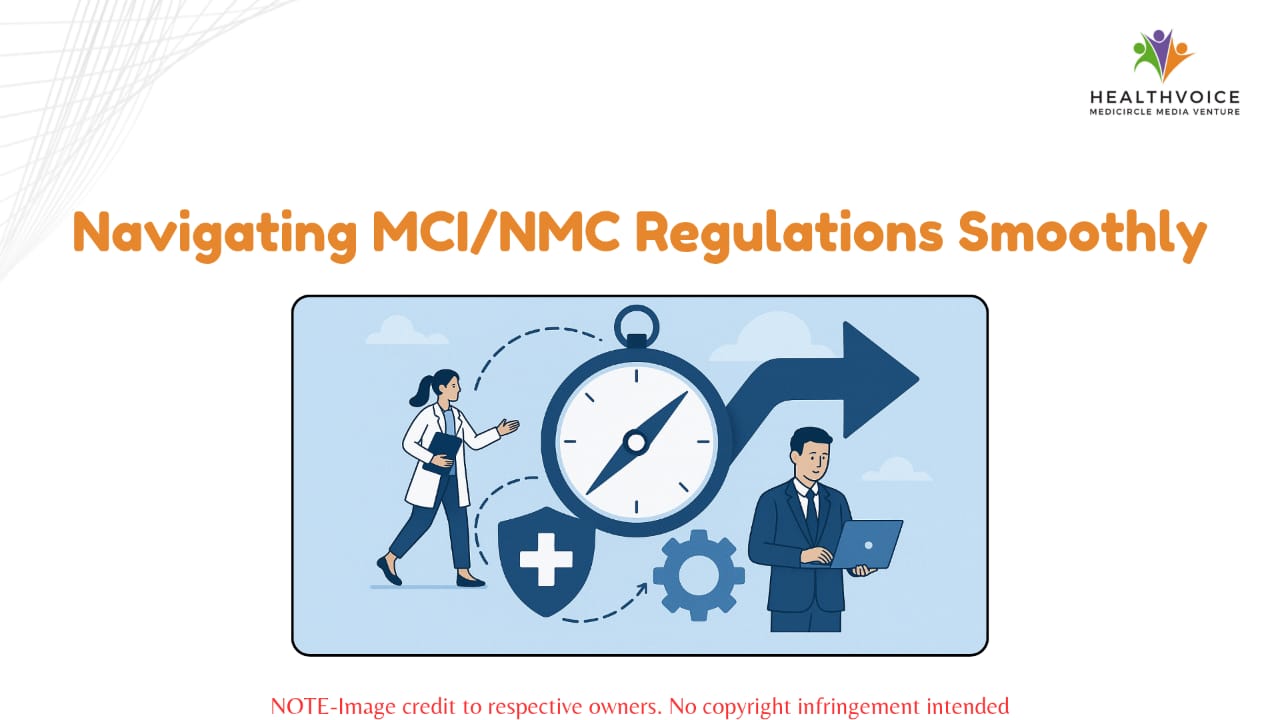Navigating MCI/NMC Regulations Smoothly
The shift from MCI to NMC reshapes how doctors in India study, register and practice. This article simplifies compliance steps, ensuring medical professionals stay informed and future-ready.

For a doctor in India, understanding professional regulations is as vital as mastering diagnosis. The journey from the Medical Council of India (MCI) to the National Medical Commission (NMC) represents more than a simple name change. It marks a significant evolution in the governance of medical education and practice. For medical students, recent graduates or experienced practitioners, staying informed about this transition is essential. It allows you to focus less on paperwork and more on what matters most, caring for patients. Let us break down this transformation into clear and practical steps.
Road from MCI to NMC:
Think of this transition not as a disruption but as an upgrade. The previous system served its purpose, but India’s medical landscape is evolving rapidly. The NMC was introduced to bring transparency, modernize medical education and make the system more responsive to the country’s current healthcare needs.
This was not merely a leadership shift; it was a complete rethinking of standards, ethics and registration processes. Many medical professionals had questions; would their qualifications remain valid? What new steps would they have to follow? The core goal remains the same: upholding the highest standards of medical practice in India. The NMC builds on the foundation laid by the MCI, aiming to simplify and modernize the process for the next generation of healthcare professionals.
The NMC rulebook:
Navigating the NMC’s framework becomes much easier when you focus on its most essential requirements. These key pillars support a compliant and successful medical career.
Your first step abroad:
For Indian students aspiring to study medicine abroad, the NMC’s Eligibility Certificate is mandatory. It is not optional, it is a crucial requirement. As per the Indian Medical Council Act, every Indian citizen must obtain this certificate before beginning a primary medical course such as MBBS in a foreign country.
Skipping this step can cause serious long-term consequences. Without it, you cannot take the Foreign Medical Graduate Examination (FMGE), the mandatory test for practicing in India. The process involves submitting educational and identification documents and the NMC releases specific application windows each year.
Returning home to practice:
After years of study abroad, the FMGE serves as your gateway back to medical practice in India. This examination ensures that foreign-trained doctors meet India’s rigorous professional standards. There is ongoing discussion about the FMGE being replaced by the National Exit Test (NExT), but for now, the FMGE remains the key requirement.
Once you pass the FMGE, the next step is registering with your State Medical Council. The NMC has clarified that if you already possess a permanent state registration, you generally do not need to re-register with the NMC. This simplifies the process considerably.
Staying updated:
The NMC is a dynamic body, continuously refining its policies to reflect the evolving healthcare environment. Recent updates include:
· Stricter rules for Indian students pursuing MBBS abroad, requiring course structures that mirror the Indian curriculum and internship model.
· Inclusive policies for Persons with Benchmark Disabilities, evaluating their ability to perform medical functions rather than relying solely on disability percentages.
· Experience-based qualifications for medical faculty appointments, emphasizing practical expertise.
Staying ahead:
Regulations will continue to evolve and the most proactive professionals make it a habit to stay informed. You can:
· Visit the official NMC website every few months.
· Follow reliable medical news platforms summarizing policy changes.
· Participate in professional associations and seminars discussing compliance updates.
· Seek guidance from senior colleagues who have navigated similar transitions.
Viewing compliance as a growth opportunity rather than a burden helps prevent last-minute challenges and ensures a smoother professional journey.
Building a practice:
At first glance, medical regulations may appear as bureaucratic red tape. But on closer look, they form the framework that upholds public trust in the medical profession. These rules ensure that every doctor in India meets a recognized standard of competence.
By understanding key steps such as obtaining the Eligibility Certificate, passing the FMGE and maintaining registration, you build a career based on integrity and respect. Compliance is not just a rule, it is part of lifelong learning that defines medicine itself. By mastering it, you can dedicate your energy to your true calling: delivering exceptional healthcare and advancing the well-being of the nation.
#NMC #MCI #DoctorsOfIndia #FutureDoctors #StudyMedicineAbroad #MBBSAbroad #MedicoLife #IndianDoctors #HealthcareIndia #MedicalCareer #MedicalUpdates #DoctorGoals #HealthVoice
